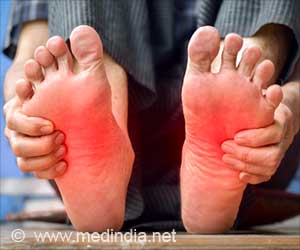Recently published online in the Medical Journal of Australia (MJA), the latest guidelines for diabetes-related foot disease in Australia, formulated by Diabetes Feet Australia, mark the first update since 2011. These guidelines, endorsed by ten national peak bodies, aim to enhance the quality of care, with improvements and updates observed compared to the previous version.
Professor Stephen Twigg, co-author of the guideline summary, emphasized the importance of well-directed and implemented guidelines in supporting quality care. He noted that the practical development of up-to-date clinical care guidelines can significantly improve health care outcomes, particularly for individuals dealing with foot disease.
Australia’s Diabetes-Related Foot Disease Crisis
In Australia, diabetes-related foot disease stands as a prominent cause of hospitalization, amputation, disability, and healthcare costs. Annually, an estimated 300,000 Australians are at risk of developing diabetes-related foot disease.
An overview of the guidelines:
The Medical Journal of Australia (MJA) has outlined the 98 recommendations from six new guidelines designed for the general medical audience:
- Prevention inclusive of screening, education, self-care, footwear, and treatments aimed at averting diabetic foot disease.
- Classification incorporating systems for ulcer, infection, ischaemia, and auditing.
- Peripheral artery disease covering examinations and imaging for diagnosis, severity classification, and treatments.
- Infection addressing examinations, cultures, imaging, and inflammatory markers for diagnosis, severity classification, and treatments.
- Offloading encompassing pressure offloading treatments tailored to various ulcer types and locations.
- Wound healing involving debridement and the selection of wound dressings.
“GPs or podiatrists or nurses with a patient with diabetes-related foot disease in front of them can click on these pathways to identify the recommendations that apply for that particular patient in terms of assessment, education and management,” guideline summary co-author Associate Professor Pete Lazzarini said.
Source: Medindia



